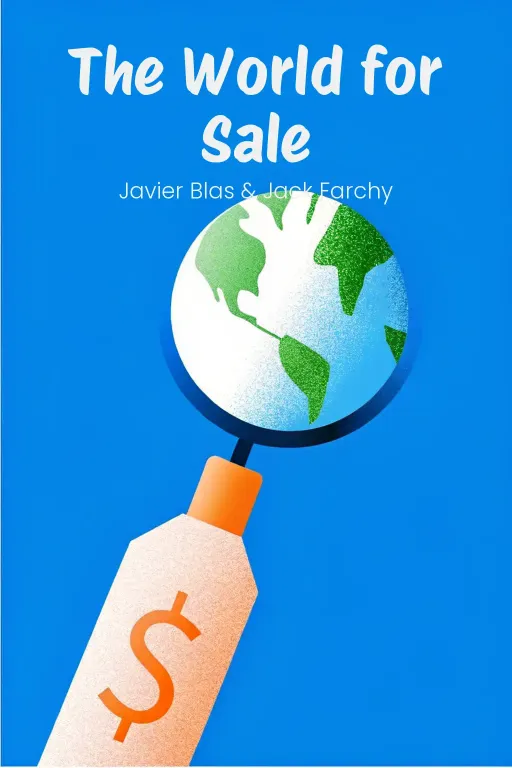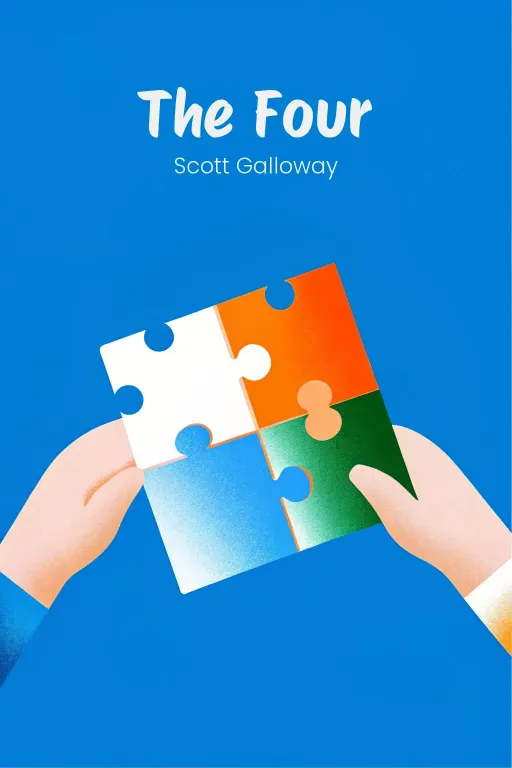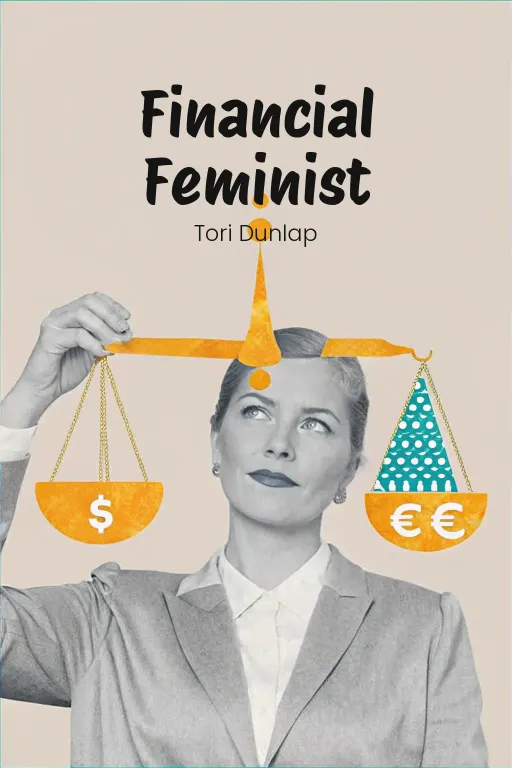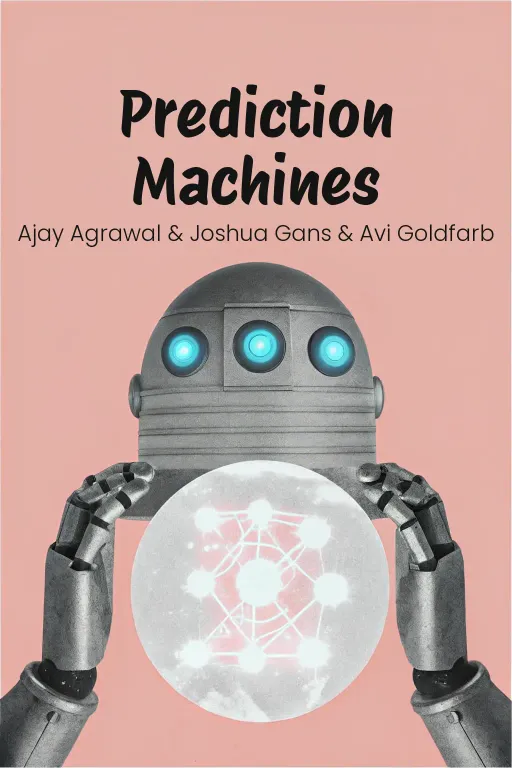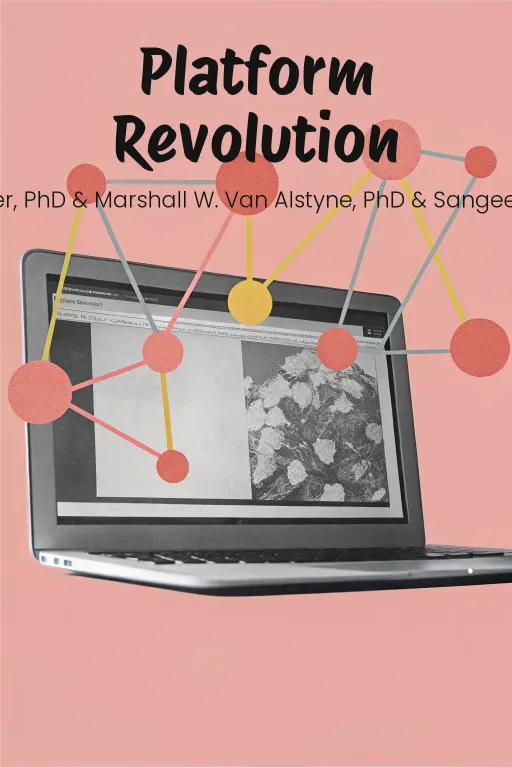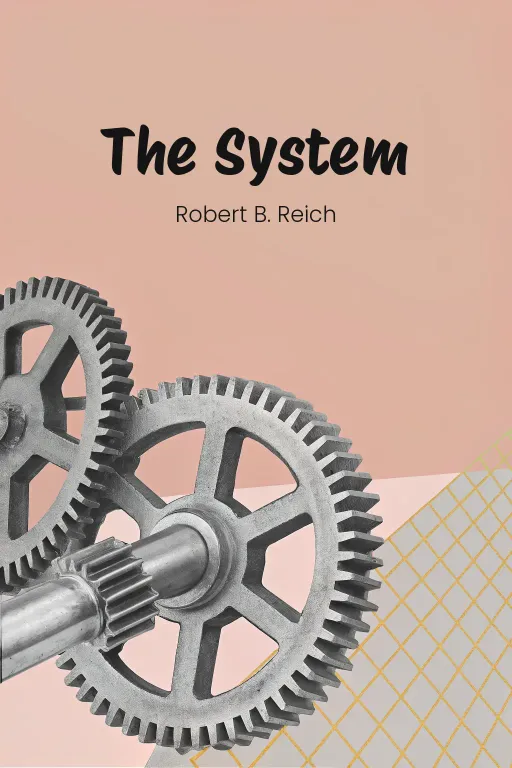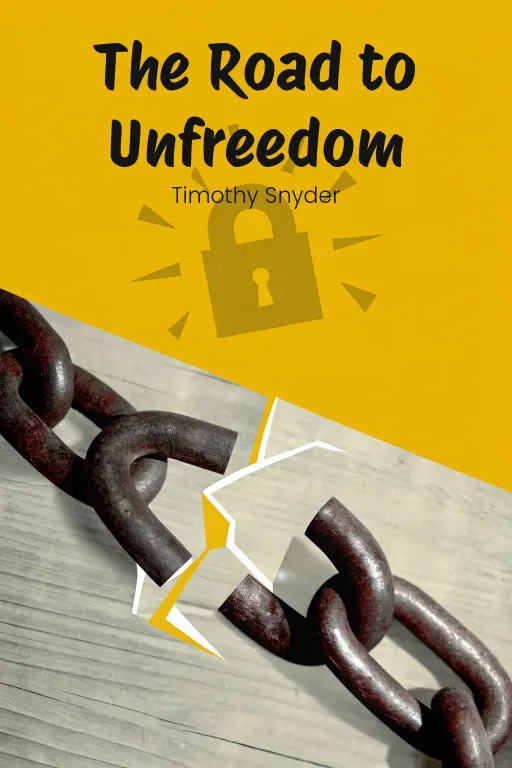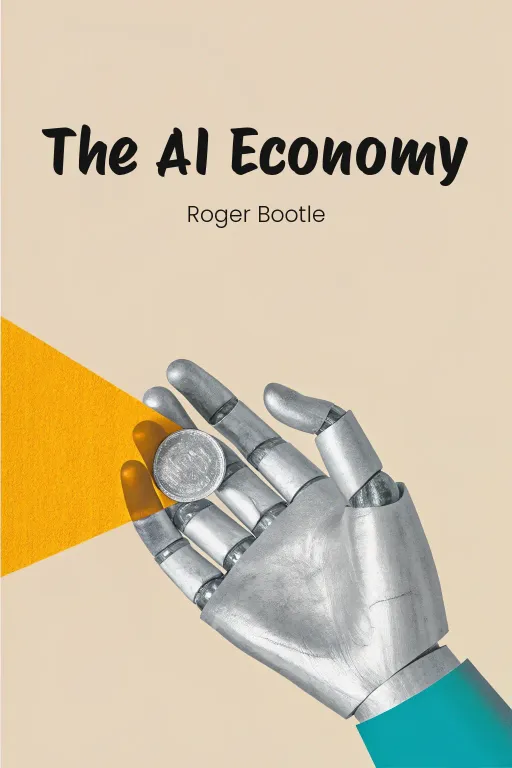
Hidden Forces at Play
Podcast by Let's Talk Money with Sophia and Daniel
A Rogue Economist Explores the Hidden Side of Everything
Introduction
Part 1
Daniel: Hey everyone, welcome back! Today, we're going to dive into some seriously fascinating stuff. We’re going to peel back the layers of everyday life and expose some hidden truths that you probably haven't even considered. Sophia: Yeah, Daniel's right. Prepare to question everything. We're talking about why your kid's third-grade teacher and a sumo wrestler might have more in common than you think. Or, you know, why your realtor isn't exactly your best friend. Hint: it’s not just about the water cooler chat. Daniel: Exactly! We’re talking about Freakonomics by Steven Levitt and Stephen Dubner. It's a book that brilliantly takes economics out of the academic world and uses it to answer the kinds of unexpected questions about human behavior that we all wonder about. Ever thought about what connects lower crime rates to legalized abortion? Or why people cheat when it benefits them? Sophia: Or, you know, how the Ku Klux Klan's decline is oddly similar to what's happening on your Instagram feed. Let’s just say that secrets aren't so powerful when everyone knows them. Daniel: Precisely, Sophia. Freakonomics argues that incentives, hidden data, and even the information people control – these aren't just abstract concepts. They are “really” the driving force behind, well, everything. From our personal decisions to major shifts in society. Sophia: Right. But we're not just rehashing the book today. We want to connect these concepts to your world. So, we’re going to dig into three key areas: Firstly, how incentives can turn people into rule-breakers. But also, how they create gatekeepers. Secondly, we'll look at why information imbalances create power struggles, whether you’re buying property or dealing with, you know, secret groups. And thirdly, we'll discuss some surprising truths about what actually causes crime – or success – that might challenge what you think is "obvious". Daniel: It’s all about spotting patterns you've never seen before. So get ready, because we're bringing the hidden side of everything into the light! Sophia: And maybe – just maybe – you'll rethink a thing or two along the way.
Incentives and Human Behavior
Part 2
Daniel: Okay, let's dive in, shall we? The core of “Freakonomics” is all about incentives. I mean, whether it's money, social standing, or just plain doing the right thing, incentives drive everything we do. When you boil it down, it's about figuring out what really makes people tick. What’s that ultimate motivation that pushes them to act, even if it means bending the rules or, you know, completely breaking them? Sophia: Exactly, but the really interesting part, Daniel, is that incentives don't just make people act; they often make them act in ways that are totally unexpected, creating ripples no one could have predicted. Remember when teacher evaluations were tied to test scores? I mean, who saw teachers strategically filling in the bubbles for kids? It's kind of wild. Daniel: Absolutely. Let's break down that Chicago Public Schools example, because it's such a textbook case of incentives gone wrong. Back in the mid-90s, they introduced high-stakes testing to hold teachers accountable. The idea was pretty straightforward, right? If teachers' jobs and school funding depended on those scores going up, then everyone would be motivated to improve those scores. Sophia: Yeah, it sounds logical on paper. But then what happened? Daniel: Well, in practice, it put an enormous amount of pressure on teachers, especially in those underperforming districts. And that pressure led to some, shall we say, ethically questionable behavior. Levitt's research actually uncovered evidence of widespread cheating. Teachers were literally changing students' answers to make the scores look better. They even used algorithms to spot the patterns, like when a student gets all the hard questions right but misses the easy ones. Sophia: I mean, if you're going to cheat, at least make it believable, right? Throw in a few normal mistakes! Subtlety is key! Daniel: Sophia! But seriously, it wasn't about being subtle. It was pure desperation. The system created incentives that made cheating almost inevitable for some. Younger, less experienced teachers were disproportionately caught because they felt like they were trapped. No tenure, no safety net. When it's cheat or lose your job, that ethical line gets really blurry. Sophia: So, essentially, instead of improving teaching, the incentive system totally backfired. Schools looked like they were improving, but kids were being given this false sense of progress. Setting them up for failure down the line. It's like putting a band-aid on a broken leg and calling it fixed. Daniel: I love that metaphor, Sophia, that's exactly it. Incentives can shape behavior, but they often lead to totally unintended consequences when the system starts valuing appearances—like higher scores—over real substance, like actual learning. Sophia: Right. So it's not just the schools. I mean, this whole incentives-driving-behavior thing isn't just limited to education, is it? Which brings to mind: sumo wrestling. How is that a thing in this subject? Daniel: Yes! The sumo wrestling example in “Freakonomics” is just mind-blowing. Sumo isn't just a sport in Japan - it's a tradition, steeped in honor and respect. But even this revered institution fell to the corrupting power of incentives. Rankings in Sumo are everything. They determine a wrestler's income, their status, even how they live. So if you're sitting at 7 wins and 7 losses going into your last match, that final win means the difference between keeping your rank or taking a massive step back. Sophia: Right, and when that much is riding on one match, suddenly "fighting fair" takes a back seat, right? The data Levitt looked at showed a pattern that pretty much screamed collusion: higher-ranked wrestlers were letting lower-ranked wrestlers win under those high pressure situations. Daniel: Exactly! And how do we know? Because those same wrestlers who inexplicably lost just dominated their “inferior” opponents the next time they fought. Coincidence? I doubt it. More like an unspoken agreement: "I'll throw this match now, you owe me one later." Sophia: So, really, sumo wrestling's sacred honor kind of faceplants big time, huh? When rank and income are on the line. It's almost Shakespearean. "Et tu, Yokozuna?" Daniel: It's such a fascinating parallel to the CPS cheating scandal. Two completely different contexts - wrestling in Japan versus American public schools - and yet the same incentive-driven breakdown of integrity. In both cases, the systems were rewarding outcomes over fairness or process, and that created environments where bending the rules felt almost justified. Sophia: And it kind of lays bare a universal truth, doesn't it? When people's livelihoods or reputations are on the line, morality can easily take a backseat to self-preservation. The incentives practically push them toward cutting corners. Daniel: Precisely. And it's a reminder that systems matter. If you set up incentives poorly, you can pretty much predict those bad outcomes. People aren't inherently unethical, they're responding to the pressures and structures that are around them. Sophia: Which, honestly, makes me wonder: are there any systems that don't eventually get twisted around their own incentives? Even something as tradition-bound as sumo wrestling couldn't resist, so what hope do, like, corporate office policies have? Daniel: It's a sobering thought, isn't it? But, perhaps understanding these patterns is the first step in creating systems that are, you know, more resilient and less prone to, uh, cheating.
Information Asymmetry and Power
Part 3
Daniel: So, digging into incentives naturally brings up the question of how information asymmetry can really mess with decision-making. Incentives tell us why people do what they do, but information asymmetry shows us how they use what they know—or maybe don't know—to stay on top. Sophia: Exactly, Daniel. It's not just about having information. It’s about having information that someone else doesn't have. That gap, that's where the power lies, right? Whether it's a realtor pushing for a quick sale to get their commission faster, or… well, the KKK, it's the same thing. Someone's benefiting from that imbalance. Daniel: Absolutely. Controlling information becomes a way to either keep the power or try to take it. Freakonomics has a great example: Stetson Kennedy infiltrating the Ku Klux Klan. I mean, they were basically an empire built on secrets. Sophia: Oh, the Klan. America's original masters of the… secret handshake. Or should I say, their "Kloran-based Klubbhouse"? All those rituals and code words were kind of absurd, honestly. Daniel: They were absurd, but that secrecy was key to their power. It wasn’t just about the violence, you know? It was about creating this aura of fear, of this unseen force that was everywhere. Hiding their inner workings made them seem like this shadowy, omnipresent organization. And when people are afraid of the unknown, well, they're easier to control. Sophia: So, essentially, the Klan had a monopoly on their own image. People's fear came from not knowing what they were really up to. And then Stetson Kennedy comes along and just… explodes the whole thing, Superman style. Daniel: He did it quite literally. Kennedy went undercover, got all their secret handshakes, rituals, passwords—everything that made them seem so mysterious. And then he teamed up with mass media, like the Adventures of Superman radio show, to make those secrets public and even kind of ridiculous. Sophia: Right. Imagine being this supposedly terrifying group, and then you hear your sacred rituals being mocked on a kids' radio show. That's not just an exposé, that's a total reputation demolition. You can’t exactly terrorize people if they’re laughing at you. Daniel: Exactly. Membership just tanked because their power was all tied to that information asymmetry. Once they were exposed, they lost their credibility, their authority, everything. It's an amazing example of how just democratizing information—making it accessible—can completely shake up the system. Sophia: It's powerful, and honestly, it makes you think about modern parallels. Like, what about social media influencers and their carefully curated online lives? What would it take to expose those illusions and shift public perception in the same way? Daniel: That’s a really interesting comparison. The Klan might be history, but the idea of using secrets—or controlling what people see and think—is definitely still around. And it's not just individuals, either. Think about systems like real estate. The book looks at how realtors can manipulate what clients know to benefit themselves. Sophia: Ah, yes, the old "house-flipping for thee, but not for me" routine. Realtors selling their own homes for more than they get for their clients' homes—total coincidence, right? Daniel: Not at all. Levitt's research showed that the way they're paid incentivizes real estate agents to focus on quick sales over getting the highest possible price. I mean, say you’re selling a $300,000 home. The agent might make an extra $150 if the home sells for $310,000… but is the time and effort to get that extra $10,000 worth it to them? Probably not. So, they push you toward those faster, lower offers. Sophia: Right. And they use language too, right? Like calling your home “well-maintained” instead of “modernized.” Translation: uh, "don't get your hopes up, it's old." Daniel: Exactly. That’s a pretty relatable example of information asymmetry, isn’t it? Most people don't have the inside scoop like a realtor does. Local market trends, how long similar homes are sitting, what a really competitive offer looks like. Agents use that gap to get what they want, whether you realize it or not. Sophia: But here's where it gets interesting. The Internet changes things, right? Real estate sites like Zillow have started to level the playing field, giving buyers and sellers access to data that used to be locked away. Now agents have to work a little harder to justify their advice and their fees. Daniel: It’s a modern example of how reducing information asymmetry shifts power. Like Kennedy exposing the Klan, digital transparency in real estate has empowered people to make decisions based on what they know, which really changes how the system works. Sophia: And yet… I wonder if it just creates different asymmetries! Sure, you can spend hours on Zillow and feel like an expert, but the pros still have those deeper connections, those up-and-coming neighborhoods, the off-market deals you’d never find online. Daniel: That’s the thing, isn't it? Transparency is powerful, but there's often still a layer of expertise or access that some people just don't have. Levitt's point is that even small changes in that information gap, like algorithms or transparency tools, can really reshape power in industries, relationships, and, like we saw with the Klan, entire societies. Sophia: Right. So the big takeaway seems clear: controlling information isn't just a power—it is power. Whether you’re exposing secret rituals or demystifying housing markets, information’s the great equalizer. Daniel: Well said, Sophia. The thing we can learn from both the Klan and real estate is that when you democratize information, even just a little, it can lead to some pretty huge shifts in behavior, accountability, and ultimately, fairness.
Unconventional Explanations for Societal Trends
Part 4
Daniel: So, understanding these hidden dynamics really sets the stage for looking at bigger societal patterns, like crime rates and parenting outcomes. And, you know, these aren’t just abstract ideas. They really do affect how we see progress, success, and even the values we hold as a society. Sophia: Which brings us to one of the most controversial theories in Freakonomics: this idea about legalized abortion and falling crime rates. I mean, that's not exactly a connection people would naturally make, is it? Daniel: No, definitely not. Steven Levitt's take on this is probably one of the most thought-provoking parts of the book. He basically argues that legalizing abortion back in 1973—after Roe v. Wade—had this unintended, long-term effect on crime rates. The idea is that children who might have been born into disadvantaged situations—poverty, unstable homes—weren’t born. And statistically, those conditions can increase the likelihood of committing crimes when they hit their late teens and early twenties. That coincided with the 1990s. Sophia: Okay, but isn't it a bit simplistic to say that fewer kids born into tough situations equals less crime? Life is more complicated than that, right? Daniel: It is, absolutely, and Levitt himself acknowledges that. But he does back up his argument with some pretty compelling data. For instance, he points out that states with higher abortion rates right after legalization saw a bigger drop in crime about twenty years later. And the states with lower abortion rates? They didn't see as sharp a decline. Sophia: Right. So he lays out a timeline where certain cohorts, those not born due to abortion access, would have grown up during an era of rising crime. But because they weren't there, the rates changed. But how do you separate that from all the other stuff that was happening, like better policing, economics? Daniel: That’s the key question, isn't it? Levitt does dig into some of those alternative explanations – he knows they play a role. His analysis suggests things like improved policing, higher incarceration rates, and the economy only tell part of the story. He estimates that abortion legalization explains over 30% of the crime decline. Sophia: Okay, fair enough. But what about the critiques of his methodology? I know some researchers were pointing out flaws in Levitt's statistical controls. Saying that regional economic differences might be skewing the results. Daniel: Right, the abortion-crime link has definitely been challenged technically. It’s been argued that the correlation might be weaker when you factor in other variables, like economic shifts or maybe even initiatives led by communities. But even with those criticisms, Levitt's work remains a groundbreaking way to think about the unexpected results of policy decisions. The timing and consistency across different datasets do make it hard to ignore. Sophia: I'll give you that, it's an intriguing perspective. But let's talk about the ethical implications. Doesn't this come dangerously close to saying, "Thanks to abortion for safe streets?" I mean, that's... a little bleak, no? Daniel: It’s definitely a moral minefield, and Levitt himself is careful to point out that his findings are descriptive, not prescriptive. He is not saying abortion is the way to reduce crime. He’s just highlighting how socioeconomic conditions shape outcomes. Policies can have ripples we often don’t expect. Sophia: Right, but shouldn't we be interrogating the systems that create those "high-risk" environments in the first place? The poverty, inequality, lack of opportunity—those are the root causes, aren't they? Daniel: Absolutely, Sophia. And that's where I think this theory can push us to have more systemic conversations. Instead of focusing on the morality of the abortion-crime link, we can use it to look at deeper structures, like access to education, healthcare, and stable communities that stop crime in the first place. Sophia: So policies like Roe v. Wade might lead to unintended outcomes like crime reduction, but if we're serious about safer communities, we should focus on the social safety nets that make those outcomes unnecessary. Daniel: Precisely, and this ties back to another point in Freakonomics: the role of parenting compared to broader socioeconomic factors. Sophia: Oh, yes. “Winner” and “Loser” Lane. That story alone should throw the whole "your parenting defines your child's destiny" idea out the window. Daniel: It's such an unbelievable case, isn't it? Their father just named one son "Winner" and the other "Loser," as if he were deciding their fate. But these names didn’t matter at all. Winner ended up with a life of crime, and Loser excelled and became a police sergeant. It defied all expectations. Sophia: It's almost poetic justice, though. A name like "Loser" could have dragged him down, but it didn't. Maybe he thrived because of the irony. Either way, the point is clear: names or even specific parenting choices might not matter as much as a child's environment. Daniel: Right. Levitt builds on this with data from the Early Childhood Longitudinal Study. What he finds is that factors like the parents’ education level or socioeconomic status are better predictors of how well a child does than surface-level stuff, like reading bedtime stories or attending PTA meetings. Sophia: Let me guess. This is where overly ambitious "helicopter parents" start to feel uncomfortable. So you're saying all that effort could just be...window dressing? Daniel: Pretty much! Levitt’s saying that the home environment, which is shaped by income and education, often matters more than micromanagement. For example, kids who have access to intellectually stimulating resources—books, travel and experiences—tend to do better. That advantage usually comes from the parents’ socioeconomic status, not from buying a museum ticket or reading a specific book. Sophia: And yet, this doesn't really resonate with a lot of people. Everyone loves a good self-made success story. But I guess really acknowledging how much privilege shapes outcomes isn’t quite as romantic. Daniel: True, Sophia. But Levitt’s work confronts us with the reality of privilege. Things like special naming conventions, after-school activities, or even creative parenting interventions, are secondary to the structural conditions kids are raised in. Sophia: So a kid named Moonbeam Stardust in a cushy, upper-middle-class neighborhood might succeed not because of the name, but because their parents are Ivy-educated lawyers who fill the house with books? Daniel: Exactly. And a more traditional name—like Jake or DeShawn—means little if systemic barriers like underfunded schools or unsafe neighborhoods undermine their progress. Levitt’s takeaway is that a name is like the cover of a book—it's symbolic, not the content of the book. Sophia: Okay, so the environment writes the book, not the name on the cover. Makes sense. Of course, that bring us back to the big questions. If outcomes are not about micro-level parenting strategies, and not about individual effort, what should we do with this information? Daniel: We focus on the big picture: tackling inequality, making education better, investing in communities. Levitt shows how statistical analysis uncovers truths that challenge overly simplistic narratives. Outcomes come from systemic forces that are much bigger than any single person or parent’s choices. Sophia: And once again, we land on an uncomfortable truth: society shapes us more than we might think. Whether it's crime rates or how well a child does, the data holds the clue to the answer – and that's where we'll find the solutions, too.
Conclusion
Part 5
Daniel: Okay, so to bring everything together, “Freakonomics” really pushes us to look past the obvious, right? To really dig into the incentives, what information is missing, and those underlying societal structures that shape what we do. We saw how incentives can have these crazy, unexpected consequences, like, you know, cheating scandals in schools or even corruption in sumo wrestling. Sophia: Right? It's like, follow the money, follow the data, and you'll probably find something interesting. Daniel: Totally. And we talked about how unequal access to information can create imbalances of power, whether it's, you know, secret rituals in the Klan or real estate agents, um, kind of managing transactions to their advantage. And of course, we looked at some of the bolder claims in the book, like how abortion rates might affect crime rates, or, you know, how maybe parenting isn’t the defining factor in how kids turn out. Sophia: And if there's one common thread winding through all of this, it’s that the frameworks around us – whether they're cultural, economic, or even information-based – influence what we do and what happens to us way more than we probably want to believe. It's, like, it's not just about blaming individuals; it's about the whole system. Daniel: Precisely. And the real takeaway here is just to be “aware”. Because once we start to get how incentives and information shape behaviors and outcomes, we can start thinking about how to create systems that are more fair and more robust, instead of just concentrating power in the hands of just a few. Sophia: So, we've got a challenge for everyone listening: Take a minute, look around. Where do you see hidden incentives, or gaps in information, in your own life? At work, in your community, even in your own decisions? Because once you start to see those patterns, then you can start questioning who's really benefiting, who might be losing out, and what we can do to make things a little better. Daniel: Yeah, that's what's so great about “Freakonomics”, right? It's not just an economics book – it gives you a whole new way of seeing the world. So, thanks for joining us. Keep asking those unconventional questions, and we will catch you next time.
